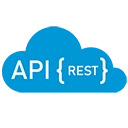In ASP.NET Web API, action methods can return various types of results to provide flexibility in how responses are formatted and handled. The most common return types are IHttpActionResult and specific data types (like JsonResult in ASP.NET MVC). This guide will explain how to use these return types effectively, along with sample code.
1. Using IHttpActionResult
IHttpActionResult is an interface that provides a standardized way to return HTTP responses. It allows you to encapsulate the response details, including status codes, headers, and content. This approach is beneficial for handling various scenarios, such as successful responses, errors, and not found situations.
public class ProductsController : ApiController
{
private static List<Product> products = new List<Product>
{
new Product { Id = 1, Name = "Product A", Price = 10.0M },
new Product { Id = 2, Name = "Product B", Price = 20.0M }
};
// GET api/products/1
public IHttpActionResult Get(int id)
{
var product = products.FirstOrDefault(p => p.Id == id);
if (product == null)
{
return NotFound(); // Return 404 if not found
}
return Ok(product); // Return 200 with the product
}
// POST api/products
public IHttpActionResult Post([FromBody] Product product)
{
if (product == null)
{
return BadRequest("Invalid data."); // Return 400 for bad request
}
products.Add(product); // Add the new product
return CreatedAtRoute("DefaultApi", new { id = product.Id }, product); // Return 201
}
}
In this example:
- The
Get(int id)method returnsNotFound()if the product is not found, which results in a 404 status code. - The
Ok(product)method returns a 200 status code along with the product data. - The
BadRequest("Invalid data.")method returns a 400 status code with an error message. - The
CreatedAtRoutemethod returns a 201 status code, indicating that a new resource has been created.
2. Returning Specific Data Types
In addition to IHttpActionResult, you can also return specific data types directly from your action methods. When you return a data type, ASP.NET Web API automatically serializes the response to the appropriate format (e.g., JSON or XML) based on the client's request.
// GET api/products
public IEnumerable<Product> GetAllProducts()
{
return products; // Return the list of products
}
In this example, the GetAllProducts method returns an IEnumerable<Product>. ASP.NET Web API will automatically serialize the list of products to JSON or XML based on the request's Accept header.
3. Returning Different Result Types Based on Conditions
You can also return different result types from the same action method based on certain conditions. This allows for more dynamic responses.
public IHttpActionResult GetProduct(int id)
{
var product = products.FirstOrDefault(p => p.Id == id);
if (product == null)
{
return NotFound(); // Return 404 if not found
}
if (product.Price < 0)
{
return BadRequest("Product price cannot be negative."); // Return 400 for invalid data
}
return Ok(product); // Return 200 with the product
}
In this example, the GetProduct method checks if the product exists and whether its price is valid. Depending on the conditions, it returns different types of results:
- Returns a 404 status code if the product is not found.
- Returns a 400 status code if the product price is negative.
- Returns a 200 status code with the product data if everything is valid.
Conclusion
Understanding how to return different types of results from action methods in ASP.NET Web API is crucial for building robust APIs. By utilizing IHttpActionResult and returning specific data types, you can create flexible and informative responses that cater to various client needs. This approach enhances the overall user experience and ensures that your API adheres to RESTful principles.

